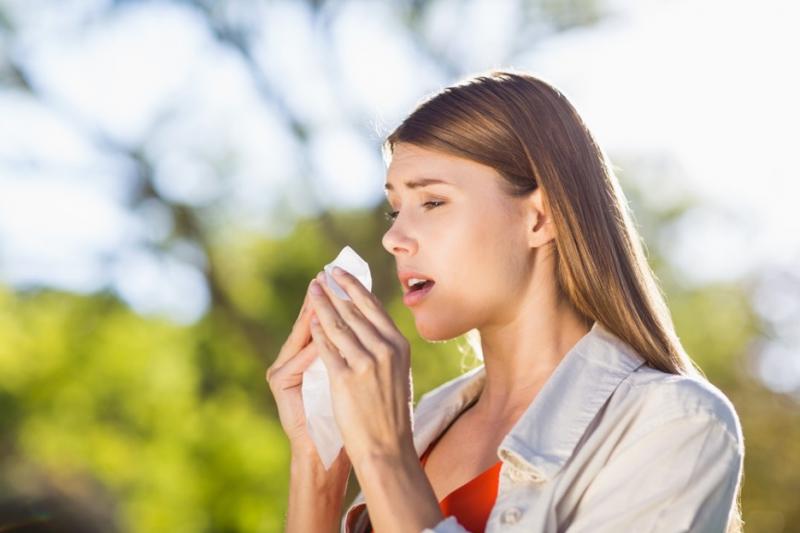How to Get Rid of Allergies: The Complete Guide

According to the Asthma and Allergy Foundation of America, over 50 million people in the United States alone suffer from allergies every year. Allergies are often brushed off as a minor annoyance, but they're actually the 6th leading cause of chronic illness.
When your body reacts to an allergen, you can experience mild symptoms like coughing and sneezing, but a severe allergic reaction can be life-threatening. Although there isn't a cure for allergies, you don't have to accept feeling less than your best as the norm.
Learning how to get rid of allergies can make you feel a thousand times better, which is why we've compiled this guide to stop allergies from ruling your day to day life for good.
Read on to learn more!
Keep Your Home Clean
Keeping your home clean is a must, particularly for those with indoor allergies. Complete a thorough dusting of all surfaces in your home at least once a week to prevent the buildup of dust mites and other allergens. You should also vacuum carpets and change your sheets and pillowcases weekly, if not twice a week.
A clean house is a great starting point, but to truly minimize the number of indoor allergens in your home, it's a good idea to take a few extra steps.
First, install HEPA (high-efficiency particulate air) filters in your home to trap airborne allergens. This can be used both in air purifiers and your HVAC system.
Next, consider purchasing a dehumidifier. Dehumidifiers, as well as running your home's air conditioning, can help to remove moisture from the air, limiting the growth of mildew and other irritants.
Try Herbal Remedies and Essential Oils
Herbal remedies can work wonders on allergy symptoms. Butterbur, for example, is an herb taken from a European shrub that acts as a natural antihistamine. There's also quercetin, a nutrient that can be obtained through apples and black tea, which helps to stabilize your immune response to allergens.
In addition, there are many essential oils that can help you get rid of allergies permanently. Among them are peppermint, eucalyptus, and frankincense.
Peppermint is an excellent anti-inflammatory, meaning that it reduces symptoms of asthma and allergic rhinitis. Eucalyptus oil is an antimicrobial that can be inhaled or added to your laundry, and frankincense is especially useful for seasonal allergies.
The best way to use essential oils is by diffusing them into the air. If you'd prefer to apply them topically, you'll need to dilute them.
You can also add a couple of drops to your bathwater. This will dilute the oils enough for direct contact with your skin, plus the steam will allow you to inhale them as if you were using a diffuser.
Get Plenty of Vitamins in Your Diet
When it comes to good health, diet is absolutely everything. Diet simply means the types of foods you consume, and the more nutrient-dense, the better. The bulk of your diet should be made up of whole foods such as fruits, vegetables, and lean meats.
Vitamin C and probiotics are particularly helpful in managing allergies. Probiotics reduce allergy symptoms and can be found in yogurt, kombucha, sauerkraut, certain cheeses, and sourdough bread. Vitamin C is in most fruits and vegetables, but those with the highest amount include broccoli, sweet potatoes, and tomatoes.
You can also get your daily dose of vitamins in the form of supplements. However, it's always best to get them in your diet. This is because your diet processes nutrients more efficiently when ingested through foods and drinks.
Seasonings and Other Natural Remedies
One of the most common ways to stop allergies is by eating unprocessed, locally harvested honey. However, honey works best for mild allergy symptoms and isn't quite as effective on severe allergies.
There are also certain seasonings that have anti-inflammatory properties and thus, can reduce allergy symptoms. These include rosemary, turmeric, and garlic.
Garlic contains diallyl disulfide, which suppresses the production of cytokines, a substance released by your immune system that promotes inflammation. In addition, garlic boosts your immune system and works as an antioxidant in your body.
Like garlic, rosemary includes an anti-inflammatory and antioxidant substance. It's called rosmarinic acid and can help relieve symptoms. Rosemary shouldn't be eaten alone, as it can cause stomach pain, so be sure to eat it with a meal.
Last but not least is turmeric. Turmeric is a superfood with antioxidant and anti-inflammatory properties, which provide allergy relief as well as assisting your body in preventing a myriad of illnesses.
Turmeric is a spice and can be added to various foods, or taken in supplement form. The supplement will likely be labeled as curcumin, as this is the ingredient in turmeric with the most beneficial abilities.
Rinse Your Sinuses
Keep your sinuses free from allergens by rinsing them often. This is most easily done through a nasal irrigation system.
To use this system, pour distilled or sterilized salt water into one of your nostrils, while gently holding the other closed. Hold your head over the sink when you let go, as the water will come out of the other side. Then repeat on the other side.
Also, it's important not to sniffle too much if you can help it. Instead of sucking the mucus and allergens back up into your system, blow your nose as often as you can.
Learn How to Get Rid of Allergies to Improve Your Health
Allergies are classified as a disease for a reason. This immune reaction can and does make life miserable for millions of people. But by learning how to get rid of allergies, you can kick the sneezing, itching, and sinus issues for good.
Remember, natural remedies can be extremely beneficial, but if you experience a severe allergic reaction, don't wait to seek medical attention.
To learn more about improving your health and building a healthy lifestyle, take a look at our blog!
Previous Posts: